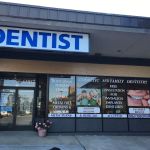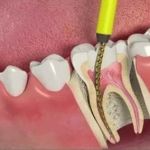- Steps to Take Immediately After Losing a Tooth
- How to Properly Store a Lost Tooth
- Reasons for Tooth Loss and How to Prevent It
- When to See a Dentist
- Treatment Options for a Lost Tooth
- Understanding Dental Implants
1. Steps to Take Immediately After Losing a Tooth
Whether you lose a tooth due to an accident, injury, or other unforeseen circumstances, it’s essential to act quickly. The first few minutes are crucial for saving the tooth and preventing further complications. If your tooth is knocked out, follow these steps:
- Stay Calm – Panicking won’t help. Stay calm and assess the situation.
- Locate the Tooth – If the tooth is still intact, carefully pick it up by the crown (the part you chew with). Avoid touching the root.
- Rinse the Tooth (If Needed) – If the tooth is dirty, gently rinse it with water. Do not scrub it or use soap, as this can damage the root.
- Reposition the Tooth (If Possible) – If you can, gently place the tooth back into the socket. This can increase the chances of saving it.
- Seek Immediate Dental Help – Time is critical. You should aim to see a dentist within 30 minutes to an hour of the tooth being lost for the best chance of reattachment.
2. How to Properly Store a Lost Tooth
If you cannot place the tooth back into the socket, it’s important to store it correctly to keep it viable. Here’s what you should do:
- Milk – Place the tooth in a cup of milk to keep it moist. The calcium in milk helps preserve the cells of the tooth.
- Saline Solution – If milk isn’t available, you can use a saline solution (contact lens solution works well).
- Water – If no other options are available, store the tooth in clean water until you can get to a dentist.
3. Reasons for Tooth Loss and How to Prevent It
Tooth loss can occur due to various reasons. Understanding these causes can help you take steps to prevent losing a tooth in the first place:
- Trauma – Accidents or sports injuries are common causes of tooth loss, especially in children and athletes. Wearing protective mouthguards during sports can reduce this risk.
- Decay – Severe tooth decay or gum disease can lead to tooth loss over time. Regular dental checkups and good oral hygiene are essential for prevention.
- Aging – As we age, our teeth may weaken or become loose. Maintaining a healthy diet and seeking dental care regularly can help manage this risk.
4. When to See a Dentist
Seeing a dentist after losing a tooth is critical. A dental professional will examine your mouth and determine the best course of action to either reimplant the tooth or provide alternative treatments. Even if your tooth isn’t saved, it’s important to consult a dentist for advice on the next steps.
5. Treatment Options for a Lost Tooth
Depending on the severity of the tooth loss and the time passed, there are several treatment options available:
- Tooth Reimplantation – If the tooth is still viable and you arrive at the dentist quickly, reimplantation may be possible.
- Dental Bridges – If the tooth cannot be saved, a dental bridge may be recommended to fill the gap.
- Partial Dentures – Partial dentures can replace missing teeth and are a more affordable option.
6. Understanding Dental Implants
If you're seeking a more permanent solution for lost teeth, dental implants are an excellent option. These are artificial teeth that are securely implanted into your jawbone, providing a natural look and feel. Dental implants are highly durable and can last for many years with proper care. Consult with a dentist to see if dental implants are right for you.
If you've recently lost a tooth or are concerned about your dental health, don't wait to seek professional advice. At Dentistry Toothtruth, we offer expert advice and a range of solutions to help you regain your smile and confidence. Learn more about our dental care services here.







 Maddison Ave Dental4.0 (83 review)
Maddison Ave Dental4.0 (83 review) Elite Dental Specialists, Joliet, IL4.0 (305 review)
Elite Dental Specialists, Joliet, IL4.0 (305 review) Brunswick Dental Group3.0 (71 review)
Brunswick Dental Group3.0 (71 review) San Fernando & Pacoima Family Dental4.0 (55 review)
San Fernando & Pacoima Family Dental4.0 (55 review) Mid-County Endodontic Group, P.A.5.0 (187 review)
Mid-County Endodontic Group, P.A.5.0 (187 review) Clove Dental Camarillo4.0 (225 review)
Clove Dental Camarillo4.0 (225 review) The Importance of Oral Health Education During Pregnancy for a Healthy Pregnancy
The Importance of Oral Health Education During Pregnancy for a Healthy Pregnancy Best Tips for Brushing Your Teeth Properly for Healthy Gums: Essential Techniques for Oral Health
Best Tips for Brushing Your Teeth Properly for Healthy Gums: Essential Techniques for Oral Health Why Skipping Dental Checkups Can Lead to Bigger Oral Health Problems
Why Skipping Dental Checkups Can Lead to Bigger Oral Health Problems Advantages of Porcelain Dental Restorations
Advantages of Porcelain Dental Restorations How Can Diabetes Cause Tooth and Gum Problems? Preventing and Managing Oral Health Issues
How Can Diabetes Cause Tooth and Gum Problems? Preventing and Managing Oral Health Issues Healthy Habits for Promoting Good Oral Health and Hygiene: Tips for a Healthy Smile
Healthy Habits for Promoting Good Oral Health and Hygiene: Tips for a Healthy Smile